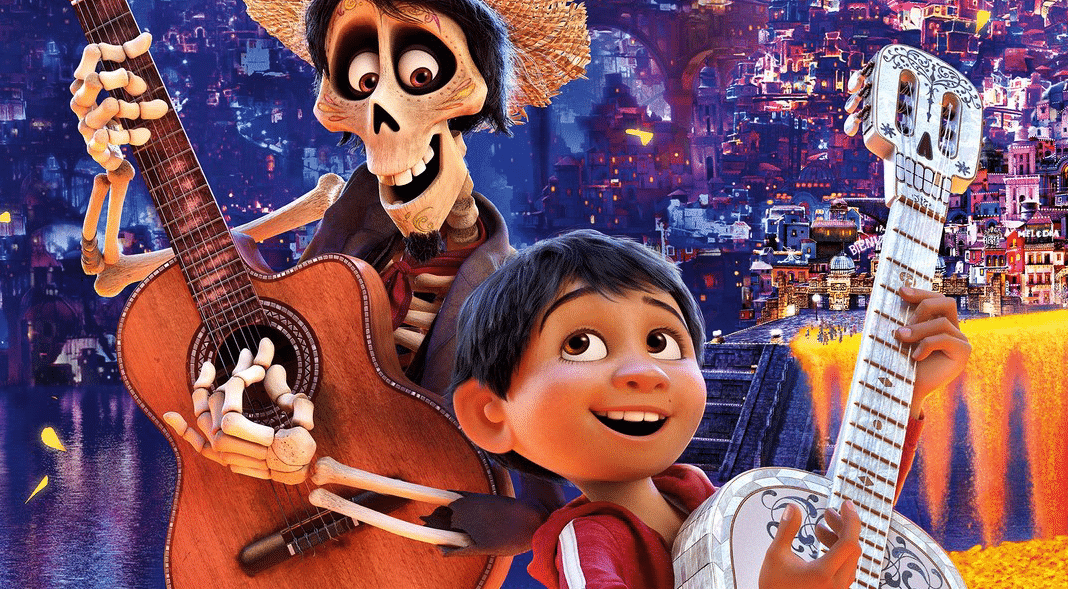Plagiarism in Pop Culture: Coco
When plagiarism leads to one's second death...
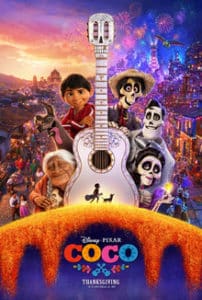
Coco is a 2017 film animated film by Pixar Studios that achieved both critical and commercial success. It won two Academy Awards, including Best Animated Feature, and became the 15th highest-grossing animated film of all time.
Inspired by the Mexican Day of the Dead celebrations, which are ongoing as this is post is published, the film tapped into themes of family, culture and destiny to tell a story that connected with audiences around the globe.
However, the film had one theme that wasn’t widely reported: Plagiarism. As it turns out, much of the story of Coco centers around a multi-generational plagiarism story that not only began the plot of the film but led to its conclusions.
To understand how, we first have to take a look at how the story in Coco unfolded and then we can examine just how likely the plagiarism is, both in the context of the film and our modern era.
Content Warning: Spoilers for Coco.
The Plot
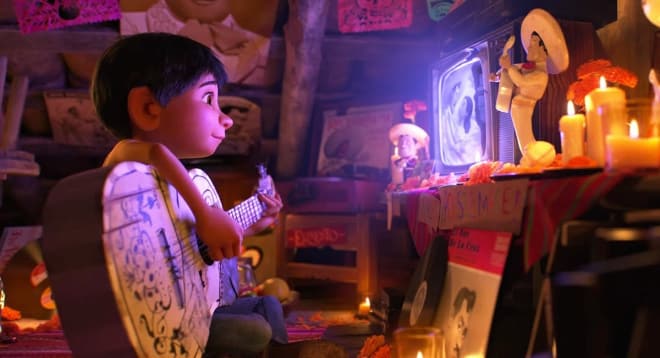
The film begins with 12-year-old Miguel telling the story of his great-great-grandmother Imelda. She married a musician who left her and their 3-year-old daughter, Coco, to pursue his musical career and never returned. In response to this, Imelda banned all music from the household, a tradition that continues to this day.
Miguel, living with the elderly Coco and the rest of his family, earns money by shining shoes and is being coaxed into the family’s shoemaking business. However, Miguel secretly loves music and has taught himself to play guitar. He idolizes Ernesto de la Cruz, the man he describes as the greatest musician of all time, who died on stage years prior.
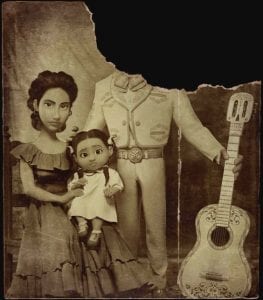
Miguel learns of a local talent show but is unsure about entering it. However, after a close call with his family, he accidentally knocks of the photo of Coco and her parents off the family Day of the Dead altar. Looking at the full image, Miguel realizes that his great-great-grandfather was holding de la Cruz’s guitar and concludes that Ernesto is his ancestor, despite the face being removed from the photo.
Miguel announces his discovery to the family but they respond poorly, smashing his guitar. This only drives Miguel harder, who breaks into Ernesto’s tomb in order to steal his guitar, which was preserved inside.
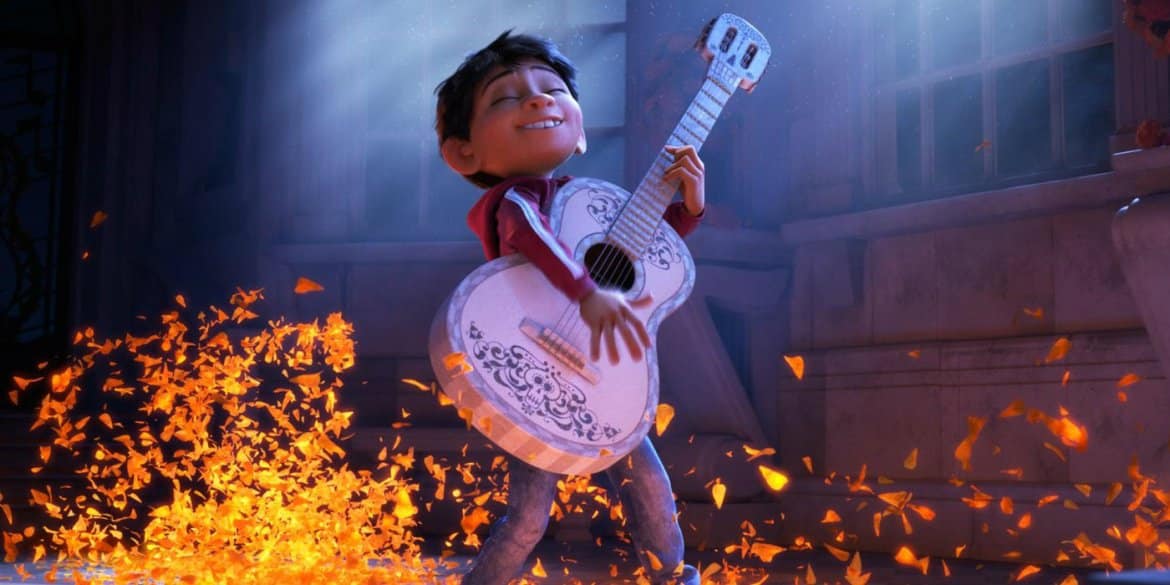
However, the act of stealing the guitar transports him to the land of the dead. No one can see him but he can see his skeletal relatives coming to visit for the celebration. Learning that the only way he can return is with his family’s blessing, Miguel flees to seek Ernesto’s approval since his dead relatives are putting too many stipulations on his return.
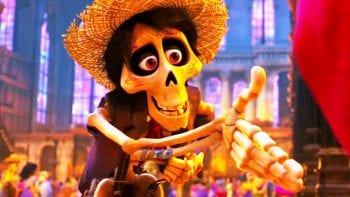
After fleeing, Miguel runs into Hector, a down-on-his-luck skeleton who claims to have played with Ernesto and can help reach him. The two strike a deal where Hector will help Miguel get sent back if Miguel will put up his photo so he can return to the world of the living and be further remembered.
According to Hector, those who are forgotten by the living disappear from the land of the dead and no one really knows where they go. Hector implores Miguel to help him as he fears his time is almost up.
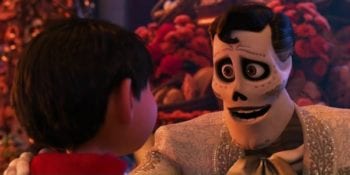
However, when the two meet Ernesto, Hector confronts him. According to Hector, he wrote all of the songs that made Ernesto famous. It’s then that Miguel realizes that the two did have a lengthy history and that Ernesto had killed Miguel both to get his songs and to steal his guitar.
Realizing that it is Hector, not Ernesto, that is his ancestor, the duo join forces with the rest of Miguel’s deceased family to both expose Ernesto for the fraud that he is and to return Miguel back to the world of the living. There, Miguel plays Hector’s song for Coco, sparking a memory in her and preserving Hector in the land of the dead.

The film ends with Ernesto’s reputation also being destroyed in the world of the living. This is seen in an active campaign to promote Hector as the real musical genius and to encourage people to “forget” Ernesto.
Understanding the Plagiarism
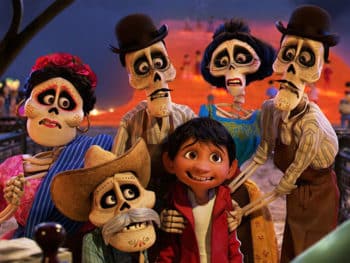
The plagiarism in the story is relatively simple. Early in their careers, Ernesto and Hector were a duo, with Hector being the one who wrote all of the pair’s songs.
However, when he decided to head back home to his family, Ernesto poisoned Hector in a bid to steal his songs and take credit for them.
Could this have happened? Absolutely. Especially in the era that it was meant to take place. A brief check of the Wikipedia list of music plagiarism cases shows countless stories one artist copying another with varied outcomes.
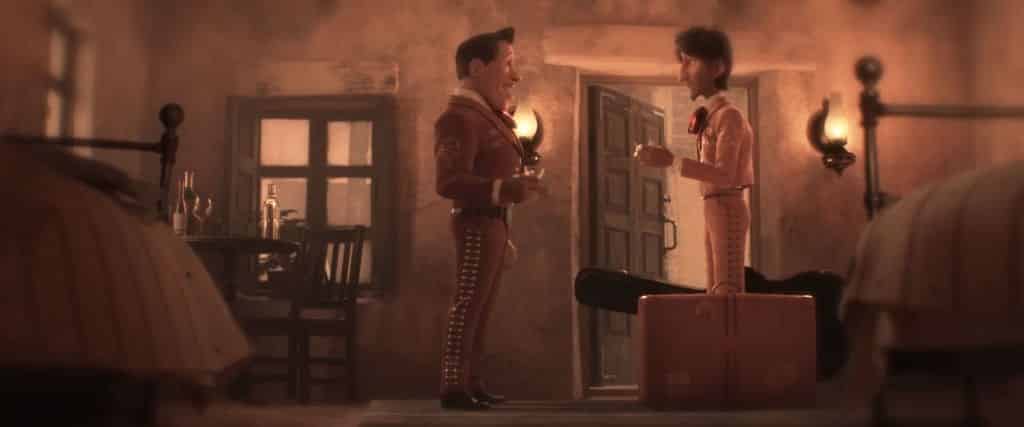
There would have been very little to stop Ernesto from committing the plagiarism. The two were a duo, meaning that the few people who had heard the songs associated them with both performers. The only place the songs were written down was in Hector’s private songbook and no one outside of the duo was aware of the creative process. Furthermore, no one cared until Ernesto became famous following Hector’s death.
In the end, it would have been incredibly easy for Ernesto to take the songs, claim them as his own and build his career. Hector would have likely been forgotten quickly.

That brings us to the other interesting component of the plagiarism: Why it’s so horrible.
Hector is actively facing his “second death” because no one remembers him or his work. Ernesto, however, is well-loved and remembered by millions.
This speaks directly to one of the reasons plagiarism, especially creative plagiarism, stings so much. People don’t just create in order to create, one of the things that they are trying to do is create something that will outlive them, create a way to be remembered. Plagiarism deprives them of that and the film doesn’t shy away from talking about this.
Sure, Ernesto poisoning Hector may have ended his first life, but it’s the plagiarism that nearly ended his second. While this may be an extreme example, it makes the point very clear: Plagiarism causes creators to be forgotten.
The only element of the story that doesn’t work for me is the conclusion, in particular in the living world. Though the land of the dead had a major expose on Ernesto, who is still an active star and performer. In the land of the living, Ernesto is a long-dead musician and the allegations against him are backed only by Hector’s newly-discovered notes.
It seems unlikely that the public would react as strongly as they did in both uplifting Hector and condemning Ernesto. While they are both local figures, this strong of a reaction, especially so quickly, seems unlikely.
The truth is that, even after a plagiarism is discovered, it’s usually the plagiarist that still remembered. Go back to that Wikipedia list and count the cases the victim was vindicated but remains forgotten.
Bottom Line
The plagiarism in the story is simple and the ending of it does beggar belief. As possible as it was, it was still plagiarism serving the plot rather than trying to make a point about plagiarism.
That being said, the film still does make a very powerful point about plagiarism, in particular WHY plagiarism is so wrong. Hector’s story is an already tragic one made doubly so because he was plagiarized. Not only did Ernesto take his first life, but he nearly took Hector’s second too.
Whether one believes in the concept of the “second death” or places value in it, the idea of creating something that will outlive us is often a powerful motivator for accomplishments of all stripes. Plagiarism, takes that away from those who deserve it.
Attribution isn’t just about fairness, it’s about remembering and, as Coco shows us, being remembered can be a very powerful and very important thing.
More Plagiarism in Pop Culture (In Reverse Order)
Want more Plagiarism in Pop Culture? There Are 40 others to check out!
- Ferris Bueller
- Randy Feltface
- Bob’s Burgers
- Columbo (Part 2)
- Columbo (Part 1)
- Death in Paradise (Part 2)
- American Auto
- Saturday Night Live
- The Conners
- Death in Paradise (Part 1)
- Lobachevsky
- Back to School
- The Golden Girls
- Young Sheldon
- The Goldbergs (Part 2)
- King of the Hill (Part 2)
- Yesterday
- King of the Hill (Part 1)
- The Kids Are Alright
- Big Fat Liar
- Coco
- Re-Animator
- Elementary
- Instinct
- Fresh Off the Boat
- The Goldbergs (Part 1)
- Lou Grant
- Star Trek: The Original Series
- Arthur
- Criminal Minds
- Mystery Science Theater 3000
- Cheers
- WKRP in Cincinnati
- Boy Meets World
- Law & Order: Criminal Intent (Part 2)
- Law & Order: Criminal Intent (Part 1)
- Jane the Virgin
- The Waltons
- Leave it to Beaver
- The Facts of Life
Want to Reuse or Republish this Content?
If you want to feature this article in your site, classroom or elsewhere, just let us know! We usually grant permission within 24 hours.
